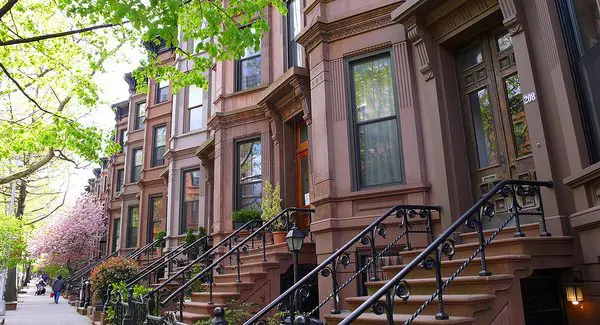- Property Tax Appeals
- Illinois
There are many different types of properties in Cook County. They are sorted into several categories for the purposes of classification.
Factors such as age, height, and function of the property determine its class. This brief guide will help you understand the variety of residences, spaces, stores, and other structures that belong to each major category.
What are the residential subclasses?
Within the major residential class, there are two subclasses: regression and non-regression.
The regression class includes:
- Residences of various stories and areas
- Old style row houses over 62 years old
- Apartment buildings with 2-6 units
- Mixed-use buildings with dwelling units and commercial units
- Split level residences
- Individually owned townhomes
There is some overlap with the non-regression class; both include residential land. The non-regression class also includes:
- Residential garages
- Cooperatives
- Residential condominiums
- Residential buildings licensed as bed & breakfasts
- Farm buildings and some agricultural land
- Residences located on parcels that are primarily used for commercial or industrial purposes
- Vacant land under common ownership with an adjacent residence
- Residences of taxpayers who received the home improvement exemption
What is the multi-family class?
While the multi-family class has no subclasses, but there are two similar major classes. The multi-family class includes:
- Land and garages used in conjunction with rental apartments
- Buildings with at least 2 stories and more than 7 units
- Mixed use buildings with dwelling and commercial units that are over 20,000 square feet
- Rented modern row houses with seven or more units
- Rental condominiums
What is the non-for-profit class?
The non-for-profit property class includes vacant land and all types of structures. Garages, commercial buildings, gas stations, commercial greenhouses, theatres, motels, and shopping centers can all qualify as long as they do not operate for profit.
What is the commercial class?
There are three major classes that include commercial property: Commercial, Commercial Incentive, and Commercial/Industrial Incentive. The Commercial class includes:
- Commercial land
- Golf courses land
- Golf course land
- Garages used in conjunction with commercial improvements
- Hotels
- Motels
- Rooming houses
- Commercial buildings
- 2-3 story buildings that contain retail or commercial space
- One-story public garages
- Gas stations
- Commercial greenhouses
- Theatres
- Banks
- Supermarkets
- Shopping centers
- Bowling alleys
- Quonset huts
- Commercial condominium units
All these structures also appear in the Commercial Incentive Class.
What is the commercial/industrial incentive class?
The commercial/industrial incentive class includes structures very similar to those in the other commercial classes. Commercial incentive land, industrial incentive land, gas stations with or without a bay or store, industrial condominium units, office buildings, and regional/promotional shopping centers belong to this class.
Industrial properties are also split between several major classes. Cook County has an Industrial class, and Industrial Incentive class, and an Industrial Brownfield Incentive class. The Industrial class includes:
- Industrial land
- Industrial minor improvements and garages used in conjunction
- Industrial condominium units
- Industrial buildings
The Industrial Brownfield Incentive class includes Industrial Brownfield land, garages used in conjunction, special improvements, and condominium units on Industrial Brownfields.
There is also a separate class for vacant land that does not fall into any of the above categories. There is also a category dedicated to exempt property and railroad property. With many overlapping category items, it may be helpful to consult an attorney for additional clarification.
No matter the category of the property you own or manage, you should consider appealing your property taxes.
Property taxes unappealing? We can help!
Appealing your property taxes is one way to ensure that the amount you pay is fair. KSN can prepare your property tax appeal and handle it from start to finish. We understand local appeal procedures to help homeowners avoid being overburdened with property taxes.
KSN has no fee unless a reduction is obtained. And we only charge a portion of the overall tax savings secured. Since 2015, we’ve saved Illinois property owners over $300 million in reduced property taxes.
Contact KSN today to discuss your residential or commercial property tax appeal. KSN attorney Timothy Jacobs can be reached at 847-777-7270 or tjacobs@ksnlaw.com.
Since 1983, KSN has been a legal resource for condominium, homeowner, and townhome associations. Additionally, we represent clients in real estate transactions, collections, landlord/tenant issues, and property tax appeals. We represent thousands of clients and community associations throughout the US with offices in several states including Florida, Illinois, Indiana, and Wisconsin.
Please note the material contained in this article is for educational and informational purposes only and does not constitute legal advice. No attorney-client relationship is established by your review or receipt of the information contained in this article. You should not act on the information discussed in this article without first obtaining legal advice from an attorney duly licensed to practice law in your State. While KSN has made every effort to include up-to-date information in this article, the law can change quickly. Accordingly, please understand that information discussed in this article may not yet reflect the most recent legal developments. Material is not guaranteed to be correct, complete, or up to date. KSN reserves the right to revise or update the information and statements of law discussed in the article law at any time, without notice, and disclaims any liability for your use of information or statements of law discussed on the article, or the accessibility of the article generally. This article may be considered advertising in some jurisdictions under applicable law/s and/or ethical rules/regulations. © 2025 Kovitz Shifrin Nesbit, A Professional Corporation.


